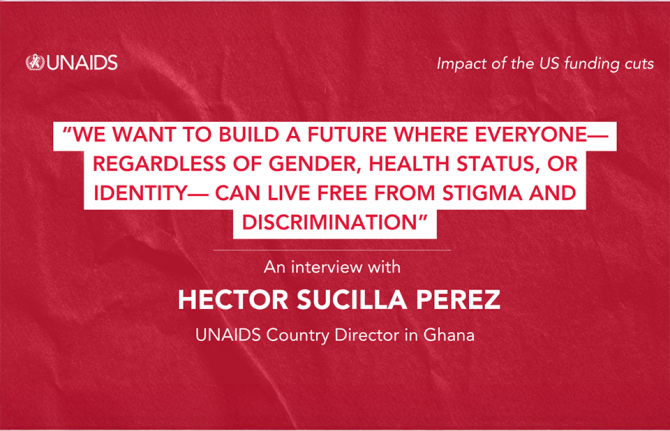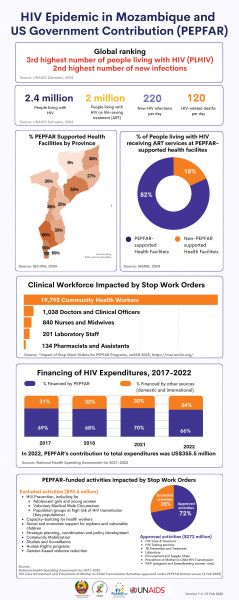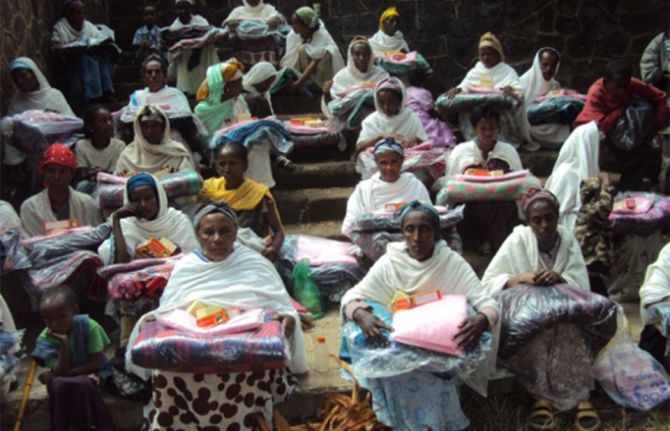

Feature Story
Status of HIV Programmes in Botswana
20 February 2025
20 February 2025 20 February 2025Documented Impact on Services:
Government Support: HIV programmes are primarily (60%) supported by the government, with public health facilities operating normally.
Service Disruptions: All key population drop-in centres are closed, limiting access to services.
Workload and Quality: Increased workload for government staff may hinder adequate monitoring of adherence and retention for clients on treatment. There is a risk of losing trained staff, which could lead to poorer service quality.
Medium-Term Risks: The quality, efficiency, and sustainability of the national HIV response may be affected due to halted US Government-funded technical assistance in critical areas like the National Sustainability and Transition of TB and HIV roadmap, the development of the National Strategic Framework IV, and HIV estimates for children and breastfeeding women.
Human Rights, Key and Vulnerable Populations:
Service Gaps: The pause in U.S. assistance to community programs and drop-in centres means tens of thousands will lose access to critical services such as HIV testing, ART, PrEP, and screenings for tuberculosis and sexually transmitted infections.
Closure of Drop-In Centres: Most drop-in centres for key populations are closed, with only one in Gaborone partially open. This closure affects safe spaces for key populations, potentially leading to treatment default.
Government Convening and Mitigation Measures:
Task Force: A Joint Oversight Committee Task Team - including government, civil society organizations, and other partners co-chaired by UNAIDS - has been established to monitor the impacts of the pause order and develop mitigation measures.
Referral Systems: The Ministry of Health is working with civil society organizations (CSOs) to ensure clients whose usual drop-in-centers have been closed are informed of where to access services.
Civil Society Impact, Resilience, and Response:
CSO Collaboration: Measures are being put in place to ensure that CSO-provided services that have been closed collaborate with government-funded CSOs and refer clients to government facilities. However, demand creation related to vertical transmission and pediatric HIV has been affected. UNAIDS is facilitating regular dialogues of CSOs to assess the situation and collectively decide on mitigating measures.
AGYW Services: Services for adolescent girls and young women (AGYW) have been closed, with clients referred to Ministry of Health youth-friendly service points. Referral channels for structural and social services for AGYW are still unclear.
Community-Led Monitoring (CLM): CLM is primarily supported by the Global Fund and domestic funding. The halt in US Government support affects the implementation and monitoring of CLM.
Politically Relevant Updates
Government Actions: The government, through the National AIDS and Health Promotion Agency and the Ministry of Health, is actively involved in mitigating the impacts of the pause order and ensuring the continuity of essential services.
International Support: The involvement of UNAIDS and other development partners highlights the international community's role in supporting Botswana's HIV response.
Region/country
Related


Feature Story
Impact of the pause of US foreign assistance in Côte d'Ivoire
19 February 2025
19 February 2025 19 February 2025A confusing and evolving situation in Côte d'Ivoire
The 90-day pause in US foreign assistance has caused a major shock to the national response to AIDS in Côte d’Ivoire. While the US Government released an emergency humanitarian waiver allowing some lifesaving HIV services to move forward during the overall pause, a lack of clarity about what is allowed has led to interruptions in services, even for HIV treatment which is allowed under the waiver. 85% of PLHIV on ART in Cote d’Ivoire are directly supported by the US President’s Emergency Plan for AIDS Relief (PEPAR) programme.
The US funding pause is creating anxiety and confusion among beneficiaries, service providers and programme managers. Partners in the AIDS response are reporting a lack of clarity about how to operationalize the waiver —restarting treatment-related activities in line with the waiver is proving much more difficult than stopping all activities.
For example, government-run clinics and health centres are experiencing staff shortages as some health personnel have had to stop work to comply with the original US President’s Executive Order as PEPFAR tops up their government salaries.
To assess the situation, UNAIDS has been consulting regularly with national AIDS programme managers, development partners and with civil society and community-led organizations to get a clearer picture of the situation on the ground.
Both civil society and the national AIDS programme (MoH) have developed plans for the way forward.
Findings
The immediate and effective application of the stop-order is creating an alarming situation in terms of the provision and access to services.
There is a significant communication lag regarding the waiver. Civil society organizations are particularly grappling with how, exactly, to implement the terms of the waiver given considerable budget cuts and given the waiver does not allow for certain complementary support services. This is particularly the case for activities for which US funding complements other sources of funding such as the Global Fund or government resources.
Main impacts
On health services:
- Immediate large-scale interruption of HIV-related services, including medical examinations and laboratory services
- There is a significant risk to adherence to ARV treatment
- There is a threat to the continued implementation of the Paediatric Action Plan.
- Tuberculosis programmes have been impacted through the cessation of Stop TB Partnership funding.
Critical national strategic planning processes led by the MoH have been interrupted: 2025 spectrum estimates, CIPHIA HIV survey, HIV sustainability roadmap
On civil society organizations
- There is a considerable real impact on operational and programmatic activities, including human resources.
Widespread temporary and permanent layoffs are reported and associated legal risks related to employee contracts.
- An inability to cover operating costs.
- Co-funded activities and programmes are stopped because critical components are financed by PEPFAR
- A threat to business continuity and long-term loss of capacity and expertise
There is a disproportionate impact on vulnerable populations who not only no longer benefit from funding for their prevention, treatment and care activities but may also see their funding from PEPFAR threatened in the long term.
Solutions and Strategic Recommendations
Immediate actions:
- Continued dialogue and joint assessment with the government, civil society and development partners.
- Strengthen and integrate short and medium-term contingency planning.
- Accurately document the interruption of services.
- Improve sharing of information with stakeholders and reassure patients and affected populations.
Resilience strategies :
- Maintain and accelerate the medium- and long-term sustainability process in this context and ensure that the current situation is considered in this work.
Explore new partnerships and mobilise alternative resources
(private sector, other donors).
- Optimise the efficiency of programmes.
- Monitor the impact of the pause on access to services for the most vulnerable, on community structures and their ability to deliver community-led responses.
Critical points
- High risk to the continuity of health services.
- High risk of non-renewal of activities relating to vulnerable populations.
- Need for a collaborative approach between CSOs, the State and international partners.
UNAIDS is holding follow up consultations with government, civil society organizations and international partners to analyse needs during the pause and to coordinate efforts to ensure the continuity of HIV services.
Region/country
Related


Feature Story
Impact of the pause of US foreign assistance in Côte d'Ivoire
23 February 2025 10 March 2025A confusing and evolving situation in Côte d'Ivoire
The 90-day pause in US foreign assistance has caused a major shock to the national response to AIDS in Côte d’Ivoire. While the US Government released an emergency humanitarian waiver allowing some lifesaving HIV services to move forward during the overall pause, a lack of clarity about what is allowed has led to interruptions in services, even for HIV treatment which is allowed under the waiver. 85% of PLHIV on ART in Cote d’Ivoire are directly supported by the US President’s Emergency Plan for AIDS Relief (PEPAR) programme.
The US funding pause is creating anxiety and confusion among beneficiaries, service providers and programme managers. Partners in the AIDS response are reporting a lack of clarity about how to operationalize the waiver —restarting treatment-related activities in line with the waiver is proving much more difficult than stopping all activities.
For example, government-run clinics and health centres are experiencing staff shortages as some health personnel have had to stop work to comply with the original US President’s Executive Order as PEPFAR tops up their government salaries.
To assess the situation, UNAIDS has been consulting regularly with national AIDS programme managers, development partners and with civil society and community-led organizations to get a clearer picture of the situation on the ground.
Both civil society and the national AIDS programme (MoH) have developed plans for the way forward.
Findings
The immediate and effective application of the stop-order is creating an alarming situation in terms of the provision and access to services.
There is a significant communication lag regarding the waiver. Civil society organizations are particularly grappling with how, exactly, to implement the terms of the waiver given considerable budget cuts and given the waiver does not allow for certain complementary support services. This is particularly the case for activities for which US funding complements other sources of funding such as the Global Fund or government resources.
Main impacts
On health services:
- Immediate large-scale interruption of HIV-related services, including medical examinations and laboratory services
- There is a significant risk to adherence to ARV treatment
- There is a threat to the continued implementation of the Paediatric Action Plan.
- Tuberculosis programmes have been impacted through the cessation of Stop TB Partnership funding.
Critical national strategic planning processes led by the MoH have been interrupted: 2025 spectrum estimates, CIPHIA HIV survey, HIV sustainability roadmap
On civil society organizations
- There is a considerable real impact on operational and programmatic activities, including human resources.
Widespread temporary and permanent layoffs are reported and associated legal risks related to employee contracts.
- An inability to cover operating costs.
- Co-funded activities and programmes are stopped because critical components are financed by PEPFAR
- A threat to business continuity and long-term loss of capacity and expertise
There is a disproportionate impact on vulnerable populations who not only no longer benefit from funding for their prevention, treatment and care activities but may also see their funding from PEPFAR threatened in the long term.
Solutions and Strategic Recommendations
Immediate actions:
- Continued dialogue and joint assessment with the government, civil society and development partners.
- Strengthen and integrate short and medium-term contingency planning.
- Accurately document the interruption of services.
- Improve sharing of information with stakeholders and reassure patients and affected populations.
Resilience strategies :
- Maintain and accelerate the medium- and long-term sustainability process in this context and ensure that the current situation is considered in this work.
Explore new partnerships and mobilise alternative resources
(private sector, other donors).
- Optimise the efficiency of programmes.
- Monitor the impact of the pause on access to services for the most vulnerable, on community structures and their ability to deliver community-led responses.
Critical points
- High risk to the continuity of health services.
- High risk of non-renewal of activities relating to vulnerable populations.
- Need for a collaborative approach between CSOs, the State and international partners.
UNAIDS is holding follow up consultations with government, civil society organizations and international partners to analyse needs during the pause and to coordinate efforts to ensure the continuity of HIV services.
Region/country
Related


Feature Story
Comprehensive Update on HIV Programmes in the Dominican Republic
19 February 2025
19 February 2025 19 February 2025The HIV programmes in the Dominican Republic are currently facing several challenges and disruptions, primarily due to shifts in US funding and political dynamics. Here are the key points:
PEPFAR-Funded Programmes:
PEPFAR-funded HIV programmes, which were stopped, are now being resumed. For instance, while services for people living with HIV have already been opened, including services offered by civil society, community support, and support for human resources at the government level among others, the opening process has been slow. And while PEPFAR-funded HIV care programmes are resuming, other activities such as PrEP for key populations and Community-Led Monitoring remain on hold.
Furthermore, the new Global Fund grant started in January 2025 has not yet been implemented at the site level.
Service Disruptions:
The PEPFAR program in the country is mainly focusing on the Haitian migrant population and therefore, the suspension of funding has raised concerns regarding Haitian migrants not having access to their treatment programmes.
The absence of USAID-funded staff and the suspension of transportation services that helped patients reach healthcare centers may impact service accessibility.
There have been debates in the media about the need to maintain internationally funded HIV programs, particularly those targeting Haitian immigrants.
Region/country

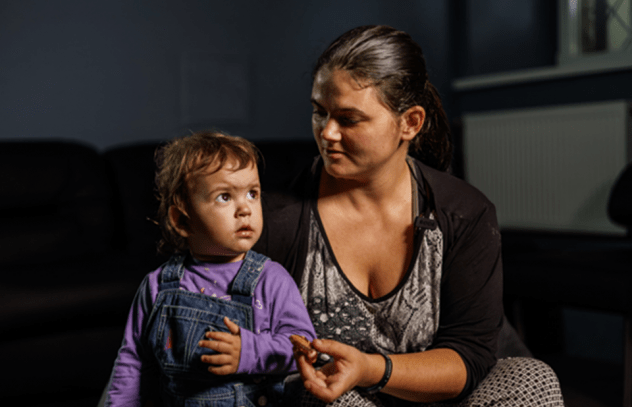
Feature Story
Three Years On: From crisis to prospective recovery
20 February 2025
20 February 2025 20 February 2025Ukraine has been reeling from three years of war since 24 February 2022. One out of two Ukrainians have been affected by the conflict and more than 12 million people need humanitarian assistance and protection while another 6 million have still not been able to return to their homes.
A war-driven economic crisis has severely impacted healthcare funding, putting access to HIV services at risk. With HIV services entirely dependent on external aid and humanitarian support that is becoming increasingly unstable, the uncertainty of the continuity of U.S. funding has further worsened an already dire situation in Ukraine. In January, the new U.S. Administration froze all foreign assistance for a 90-day period. A waiver to allow life-saving services was subsequently issued allowing support for some HIV services.
The U.S. President's Emergency Plan for AIDS Relief (PEPFAR) contributed US$15.6 million to the HIV response in Ukraine during 2023 and 2024. This includes $11 million for antiretroviral therapy and $2 million for various types of rapid test kits, while the rest was used for laboratory expenses.
UNAIDS and partners estimate that 92,840 Ukrainian people could see their HIV treatment disrupted if U.S. funding was to be entirely cut – that is 78% of all people living with HIV on treatment. In addition, stocks of life-saving treatment and HIV prevention drugs are low, with people only getting three versus six months of drug supply.
The threat of a potential financial void left by the U.S. is forcing Ukraine’s health system to search for alternative sources of funding. From Global Fund reprogramming to private sector donations to bulk medicine offers from pharmaceutical companies. Many options are being explored to patch together a lifeline. However, even collectively these efforts may not be enough to fill the PEPFAR gap should the U.S. permanently withdraw its support.
There are hopeful signs of recovery like HIV testing increased 23% last year compared to 2023 but obtaining comprehensive epidemiological and clinical data remains difficult.
This inevitably affects the accuracy of overall assessments due to the ongoing conflict, loss of administrative control in certain regions, missing persons, and mass displacement.
Despite ongoing challenges, Ukraine remains committed to the HIV response, supported by a strong coalition of government, civil society, international organizations, and donors. The UNAIDS Secretariat, Co-sponsors, UN agencies, and member states continue working together to ensure essential services for women, people living with HIV, and key populations, reinforcing the response's sustainability even in the face of adversity.
Related information
Special page
Region/country
Related

Feature Story
HIV Epidemic in Mozambique and US Government Contribution (PEPFAR)
18 February 2025
18 February 2025 18 February 2025

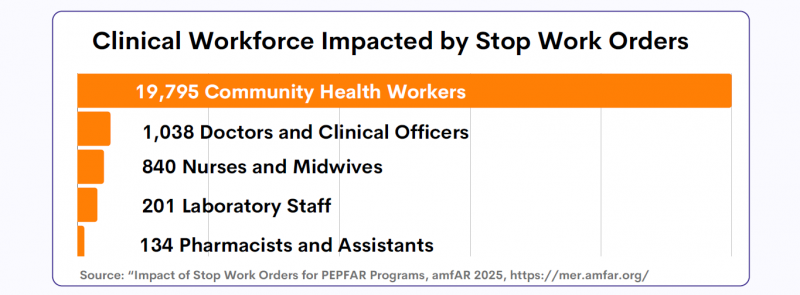
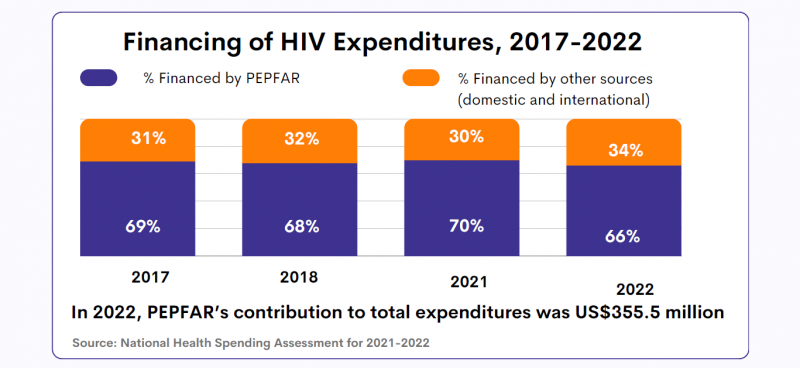


HIV epidemic in Mozambique and US Government contribution (PEPFAR)
Region/country

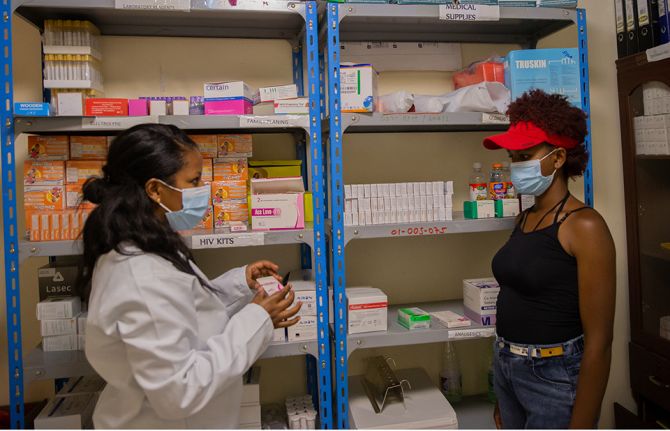
Feature Story
A crisis unfolding: hard-won progress in Ethiopia’s HIV response at risk
13 February 2025
13 February 2025 13 February 2025Ethiopia has made significant progress in its HIV response in recent years and is on track to reach the UNAIDS 95-95-95 targets with 90% of people living with HIV in the country being aware of their HIV status; 94% of those diagnosed with HIV receiving antiretroviral (ARV) therapy; and 96% of people on ARV therapy achieving viral suppression.
But now, that progress is at risk. The recent pause in United States foreign assistance poses a direct threat to the lives and well-being of thousands of people living with HIV in Ethiopia and millions globally. Critical services are grinding to a halt, leaving people who rely on them facing an uncertain and dangerous future.
Ethiopia is heavily reliant on external funding for its AIDS response. PEPFAR provides 53% of HIV funding in the country. In 2023, UNAIDS’ estimates show that there were 610 000 people living with HIV in Ethiopia, 510 000 of whom were accessing antiretroviral treatment.
For women living with HIV, uncertainty is growing. Limited and unclear communication from healthcare providers and policymakers has left them in the dark about treatment changes, medication availability, and service disruptions. With no clear answers, they are forced to rely on rumors, fueling fear and anxiety.
“We don’t know what’s happening. Are services being cut permanently? Will we still get our medication next month? No one is telling us anything,” one woman shared.
To make matters worse, case workers and counsellors—once a vital source of medical and emotional support—are disappearing. These professionals were more than healthcare providers; they were trusted confidants who ensured women received care in a stigma-free environment. Their absence is leaving many feeling abandoned.
“They understood our struggles, checked in on us, and made sure we had what we needed,” another woman explained. “Without them, we feel forgotten.”
As services become increasingly unreliable, distress and fear are taking hold.
Shortages and desperate measures
Funding cuts bring shortages, and for women living with HIV, the fear of running out of medication is overwhelming. Access to antiretroviral therapy (ART) is essential—it keeps people alive. Yet many are already facing supply disruptions, and whispers of medication shortages are spreading panic.
“If I can’t get my medicine, what happens to me?” one woman asked. Women living with HIV who have been healthy for years now fear an uncertain future where their treatment is no longer guaranteed. People living with HIV who do not access antiretroviral therapy will eventually develop AIDS and die. To cope, many have resorted to stockpiling medication, traveling long distances and spending entire days at clinics in hopes of securing extra supplies. While understandable, this survival strategy comes at a heavy cost—disrupting work, family life, and daily routines. No one should have to live in fear of their next refill. The urgent need for stable, uninterrupted HIV treatment cannot be overstated.
Adding to the crisis, shortages extend beyond medication. The dwindling supply of test kits, including viral load tests, is threatening the future of diagnosis and monitoring. These tests are crucial to ensure that people living with HIV maintain undetectable viral levels, reducing transmission risks and protecting their health.
Fears have also been expressed around the availability of medications for HIV prevention, particularly for the prevention of vertical transmission of HIV. If the current pause in the supply of medical resources continues, the availability of these vital medications could be severely compromised, putting the lives of women and children at even greater risk. For women living with HIV who are pregnant, a lack of lifesaving medications for themselves also means their children can be born with HIV even though this is entirely preventable.
Without test kits and prevention measures, undiagnosed and untreated cases could rise dangerously. “We can’t afford to go backward,” one woman said.
A Plea for Action
The voices of these women reveal a stark and urgent reality—funding cuts have left people living with HIV in a state of uncertainty, with no clear path forward.
"Urgent intervention is needed,” stressed Tina Boonto, Country Director for UNAIDS Ethiopia. “UNAIDS is gathering information and developing funding solutions to address the shortfall, with proposals for both the government and external partners to ensure continuity of critical services. We hope Ethiopia's government will step up and lead in covering these essential services. We must act now to safeguard gains that have been made and succeed in securing sustainable support to people living with HIV."
While the future remains uncertain, one thing is clear: without swift action, the hard-won progress in Ethiopia’s HIV response is at risk.
Impact of recent U.S. shifts on the global HIV response
Region/country
Related


Feature Story
Government ensures continuity of treatment in Malawi
10 February 2025
10 February 2025 10 February 2025There is minimal disruption to HIV services in Malawi. People living with HIV are receiving services. People living with HIV who go to facilities that have been are closed are being referred to government services that are open. Early last week, in response to UNAIDS’ advocacy, the government issued a press release assuring the public that HIV services will continue uninterrupted. Also last week the government developed a contingency plan, which will form Part B of the ongoing work to develop a Sustainability Plan for Malawi. The government issued a circular of the activities it will prioritize going forward. It has redeployed its staff to fill the positions that are vacant because of the stop order. In general services are ongoing.
Unfortunately, PrEP and long-acting injectables are not part of the package the government will prioritize. Civil Society groups are concerned about the omission of prevention interventions beyond treatment and PrEP for pregnant and breastfeed women. UNAIDS is working with other international partners to see if they would be willing to support PrEP and long-acting injectables.
Staff partner reduction
Non-government organisations such as Partners in Hope, Partners in Health, Baylor College, Lighthouse Trust, Pakachere, CEDEP, EGPFAP, Right to Care, JPPHEIGO, MACRO employ more than 4000 cadre of staff in support of the AIDS response using PEPFAR and CDC resources. These cadre include 180 Doctors, 1640 Health Diagnostic Assistants, and 1870 treatment supporters received stop orders and ceased their activities. Some of these NGOs did not receive the Stop Orders but stopped activities as a precaution. They surrendered the work equipment, including computers and vehicles at the district health offices. Civil society organizations including the Malawi AIDS Services Organisation and the Malawi network of people living with HIV work has been impacted. They have stopped or slowed their community-led monitoring work.
Interruptions to Services at Key Populations Drop-In Centres
The drop-in centers for key population are not staffed because most of the staff are PEPFAR or CDC supported, who are not working. The drop-in centres are open but minimally staffed. PLHIV are worried about what will happen when the stocks in country – approximately 9-months-worth – run out. Members of civil society are keen to understand how the government will move Malawi’s response to HIV forward, sustainably. They are also concerned about the continuity of prevention and treatment efforts going on in Global Fund Grant Cycle 7 given that the US government provides the bulk of contributions to the GFATM.
The UN Family Responds Together
The UNCT met to discuss the situation. Beyond HIV, the impact of the Stop Order was widespread including on support for the forthcoming elections, maternal and child health and resettlement of refugees. The UNCT agreed on a series of support and advocacy efforts to move forward including reaching out to the government to find out where they need our support and what austerity measures they will take given the freeze on funding.
Last week, the U.S. Ambassador assured the UNAIDS Country Office that PEPFAR-supported services will recommence early next week. She indicated the country needs to complete the sign the Sustainability Plan.
The UCO met the Minister of Health and reached out to other Senior Government Officials and the Sustainability plan has now been cleared by the Minister of Health. The UCO understands the Sustainability plan and the Contingency Plan are one of the key items that the Minister will share with the President this Friday.
The UCO will continue to meet with the Minister of Health and Ambassadors from other countries, the NAC, and civil society to understand the flow of services in the districts and see how best we can support.
Region/country
Related


Feature Story
Impacts of U.S. pause of foreign assistance on global AIDS programmes in Kenya
09 February 2025
09 February 2025 09 February 2025Overall National Response
A Cabinet memo on the current situation and recommendations for the government of Kenya (GOK) to mitigate the situation has been developed by Ministry of Health and domestic resource allocation is a key recommendation as well as fast-tracking the development of the ongoing HIV sustainability roadmap.
A special national HIV inter coordination committee (ICC) that includes CSOs, communities, private sector, UN Agencies and government stakeholders was convened by UNSDCC on Friday, January 31st to assess the impact and suggest solutions.
Commodity Security
UNAIDS’ Country Office (UCO) has been part of the commodity security meetings.
All requests to distribute PEPFAR-supported products in country through USAID are on hold until further guidance is provided to unfreeze the initial communication.
Products that were to be distributed in January 2025 under USAID/PEPFAR include ARVs (Nevirapine syrup, Dolutegravir 10 mg and 50 mg). For these products, health facilities had a stock balance between 2 to 4 months by 31st December 2025.
The country may start experiencing erratic supply of Nevirapine syrup and Dolutegravir (DTG) 50 mg towards the end of March and May 2025, respectively, if the stop work order is not lifted.
The current stocks at Kenya Medical Supplies Authority (KEMSA) for DTG 10 mg will sustain the country beyond June 2025.
Viral load and EID products are mainly procured through PEPFAR support. This will be adversely affected if the stop order is not lifted as soon as possible as the quantity under the Global Fund is minimal, targeting specific point of care testing sites.
Stop Gap Measures for Commodity Security
GOK will be required to allocate funds for the distribution of these products from Missions for Essential Drugs and Supplies (MEDS) to health facilities. The estimated cost by KEMSA is approximately USD 10 million.
Procurement and delivery of health products will be facilitated by the Global Fund and government counterpart financing. Additionally, discussion to front load commodities under Global Fund year two will be initiated.
If the stop order continues, GOK will be required to allocate funds to cover the deficit.
Discussions to allow Government to distribute HIV commodities under MEDS is to be initiated if the stop work order is not lifted. (To note, as of February 2, 2025, there has been a reprieve with the new circular on waiver for administration costs for procurement and supplies of essential drugs. The circular is however yet to be implemented as it is a new directive)
Human Resources for Health
All PEPFAR-supported medical personnel/health workers have been requested to stop work as per the stop work order effected in PEPFAR supported counties and facilities.
All PEPFAR-supported implementing partners (CSOs, FBOs, UN) and sub-grantees have been requested to stop work and consequently, staff have been requested to proceed on leave for the duration of the stop work order (90 days).
In some of the counties, the county government has recalled all health workers who are on leave to cushion the situation.
UCO programs supported by PEPFAR through COAG (Community led monitoring and Strategic Information) have been halted.
Consequently, the five UCO CLM partners (CSOs, KP led organizations) have stopped work and over 148 staff IP staff have been affected, and service delivery constrained.
Way Forward
UCO to consider supporting a national communities’ meeting to discuss the impact on service delivery and make recommendations to national and county governments.
As mentioned above, as of February 2, 2025, there was a reprieve with the new circular on waiver for administration costs for procurement and supplies of essential drugs, including continued support for human resources. Hopefully, measures will be implemented this coming week to avert potential risks.
Region/country
Related


Feature Story
Impacts of U.S. pause of foreign assistance on global AIDS programmes in Botswana
09 February 2025
09 February 2025 09 February 2025Funding for the HIV Response in Botswana
Prior to the U.S pause of foreign assistance, the Government of Botswana funded two thirds of its HIV response (approximately US$ 90 - 95 M). The remaining costs were covered by the U.S. Government (US$ 55 M via the U.S. President’s Emergency Plan for AIDS Relief, PEPFAR, and US$ 12M via the Global Fund to Fight AIDS, Tuberculosis and Malaria).
Immediate Risks
The pause and stop order will:
- Undermine Botswana’s ability to fully achieve UNAIDS’ 95-95-95 targets and the efforts to finding the missing 5-2-2 in Botswana. That means reaching an additional five percent of all people living with HIV with testing so they are aware of their HIV status; ensuring that an additional two percent of all people who are living with HIV and are aware on treatment and ensuring an additional two percent of all those aware of their status and on treatment have their viral load suppressed.
- Take away safe spaces for key populations (KPs) and adolescent girls and young women (AGYW) and increase their vulnerability to HIV-related sigma and discrimination, gender-based violence, mental health problems and other related social ills.
- Reduce access to early diagnosis and treatment for HIV which leads to health complications and higher default rates for treatment adherence which correlates to a lack of viral suppression.
Impact on Civil Societies and Communities
In Botswana, the impact of the pause on U.S. foreign assistance and related stop order has already affected delivery of HIV prevention and treatment services by civil society organisations (CSOs) and will have implications for the entire system across the national HIV response.
UNAIDS consulted with a significant number of CSOs to establish the impact of the pause and stop order on the provision of services. Additionally, a task force set up by NAHPA and the Ministry of Health and cochaired by UNAIDS met to establish a complete picture of disruptions not just for CSOs but also within MOH and NAHPA where a total of about 207 positions are funded by PEPFAR.
Most of the affected CSOs are those providing some services for key and vulnerable populations (AGYW, MSM, SW, PLWHIV). The government continues to provide services and encourages the affected CSOs to refer and link clients to government facilities. While CSOs have been funded to provide demand creation activities, only three of those consulted have clinics or drop-in centres that were considered safe by the aforementioned population groups. They offer HIV counselling and testing Services, ART dispensing, PrEP dispensing, adherence and psychosocial support, condom distribution and referral and linkages to other services. The stop order has led to the closure of these CSO clinics and drop-in centres and disrupted service delivery.
Government Response
Botswana’s government health facilities continue to operate and provide services. The Ministry of Health issued a press release on 29 January assuring Batswana living with HIV that the pause of U.S. assistance will not affect the availability of ARVs as they are directly procured by the Government of Botswana. This was followed by another press release on 6 February further assuring continuity of services.
Mitigation Measures
Through the Joint Oversight Committee, a task team will be established to monitor developments and ensure that HIV services are not disrupted, clients are referred and linked to care at government facilities and that CSO’s providing services will receive domestic funding.
Consultative meetings between stakeholders are ongoing as per the Ministry of Health’s press release.



